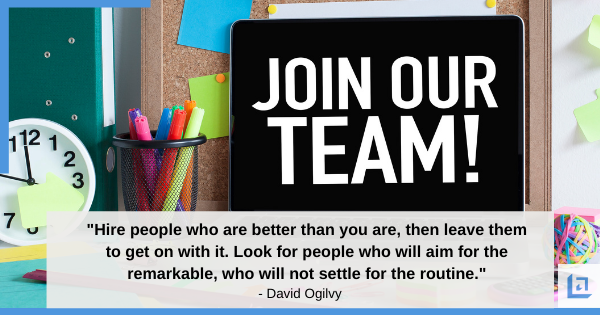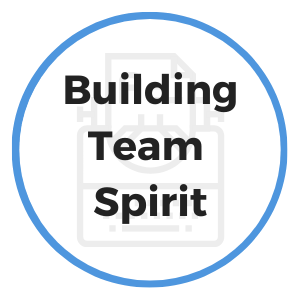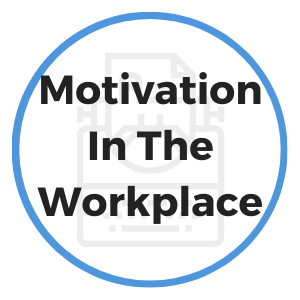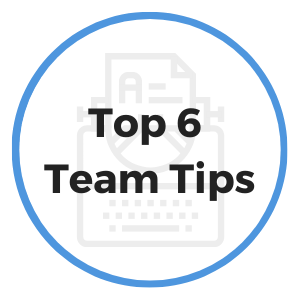- Home
- Team Building Articles
- Hiring the Right Person
Why Hiring The Right Person For The Right Job Is Critical
Hiring the right person each time you have an open position must be your number one priority. How you go about identifying and selecting qualified candidates will be a major factor in choosing the right person. You always need to be looking for people who will be a great fit for your culture, and will be instrumental is helping grow the business.
There is never any guarantee that a candidate will become the perfect match, but the interview process can be a tremendous help if you use it effectively.
Interviewing candidates for an open position is one of the final steps in the hiring process. However, before you begin interviewing you'll want to make sure that you've completed the following preparatory steps, which will have a direct impact on how effective the interview process will be.
First, Confirm The Need to Hire - Are you properly utilizing the skills and talents of your current employees? Is there an opportunity to streamline and save the salary dollars? Can your business growth support a new employee?
Complete A Thorough Job Analysis - What are the job's essential functions and key performance criteria? What additional skills would be beneficial? Don't simply assume you need someone with the same skills and talents as the person who left. Ask what skills the ideal candidate will have.
Verify The Job Description - review and re-write if necessary the existing job description. Detail the specifics of the position based on a complete job analysis.
Determine The Hiring Salary - Adequate base pay and incentive is key to hiring the right person. Based on internal and external comparisons, is the salary competitive with the salaries and responsibilities of other similar level positions inside your company as well as externally? Make sure you hire the person in at a competitive salary or they will be at high risk of leaving once you've invested in their training.
Decide Where To Find Qualified Applicants - What are the recruitment techniques to be used for attracting and hiring the right person? What is the time frame for conducting your search? Remember that advertising is not the only way to recruit. Some of the best candidates are those referred by existing employees or customers.
Collect and Review Applications and Resumes - Once you have a diverse pool of candidates to choose from, you can begin selecting the most qualified people for further consideration. Do not do this in a vacuum. Solicit feedback from a small group of knowledgeable leaders in the organization or on your team. You are now one step closer to hiring the right person for this key position!
"You can’t teach employees to smile. They have to smile before you hire them."
- Arte Nathan
Schedule Interviews - Select the most qualified candidates for the position, based on the person's background, proven skills, and experience that has prepared him/her to meet the requirements listed in the job description.
Check References - Always take the time to check a candidates references before making a job offer. You never know what kind of information you can get that will be of use in your selection process. If possible, request a copy of the top candidate's last annual review. If they are willing to produce 2-3 years of annual reviews, all the better!
Hire The Right Person For The Job - After going through all of the above steps, you should have a very clear idea of which candidate is right for the job. Discuss your decision with other trusted leaders to ensure their is support for the candidate. Once you've done your homework, go with your gut and make the hiring decision.
Top Tips for Hiring the Right Person
Now that you know where the interview process fits into the hiring process, let's take a look at the "Do's" and "Don'ts" of conducting a successful interview - which will lead to hiring the right person.
Hiring The Right Person Tip #1: Prepare In Advance For Interviews
- Prepare a list of standard questions concerning the
candidate's skills, abilities and past work performance that you want
him/her to answer.
- Prepare a list of prioritized and measurable criteria, either in the form of a worksheet or other method, for analyzing and comparing the candidates.
- Have 1 or 2 trusted leaders or team members conduct the interviews with you to ensure fairness and consistency throughout the process.
Hiring The Right Person Tip #2: Collect Key Information During Interview
- Seek to Identify Behavioral Clues - Since past behavior predicts future behavior, look for the candidate's behavior patterns as you collect information. For example, is the candidate more of a generalist or a specialist? Often by listening to how the candidate responds to your questions about previous jobs, you will be able to get a very good idea of what their behavior will be like in the future, should you decide to hire this candidate.
- Don't Overly Share Information Up Front - This limits the candidate from being able to formulate answers that exactly fits your company's needs. Don't put the right words in the candidate's mouth. See if candidate's can come up with the right answers on their own.
- Focus On Past Performance - For example, if the job (such as an office manager) demands an individual who is well-organized and handles paperwork easily, you may want to ask, "How do you keep track of your own schedule and desk work in your current position?" Use questions that are open-ended to encourage more detailed responses.
- Ask Questions Specific To The Role - For example: "As the customer service representative, you may encounter a few unhappy customers who will yell and scream at you over the telephone or in person. Have you had any experience dealing with difficult customers? Tell me about the most difficult customer you have dealt, and how did you resolve the their issue? Note the candidate's choice of words and non-verbal behavior. Are they answering your questions clearly?
- Assess Questions The Candidate Asks - Be sure to understand the reasons why the questions are being asked. Notice which questions he/she asks first as they may be his/her primary concerns. Is it just about the money or are they genuinely passionate about the job? Ask the same questions of each candidate.
- Take Detailed Notes - Notes are important to verify fairness in the process and will help you distinguish one candidate from the other, especially if you will be conducting several interviews.
- Organize and Analyze Your Observations - Doing this immediately after each interview when your memory is fresh is key. Don't try to remember everything,
it's impossible. Rate each candidate on the same criteria immediately following the interview. This can be very helpful
when making a final decision on hiring the right person.
"People are not your most important asset. The right people are."
- Jim Collins
Hiring The Right Person Tip #3: Ensure Professionalism During The Entire Interview Process
- Dress appropriately
- Set a professional atmosphere
- Inform the candidate of the structure. Let the candidate know you will be focusing on past results and that you will be taking notes
- Provide information on the company and the job to each candidate
Hiring The Right Person Tip #4: Treat All Candidates Fairly
- Use your list of standard questions during each interview so that you treat each applicant the same, comparing apples to apples.
- Refer to the criteria for analyzing candidates. Ask questions in regards to the job criteria.
- Keep all questions job-related.
- Show a genuine interest in every candidate you interview.
Hiring The Right Person Tip #5: Be Courteous and Respectful
- Conduct the interview in a private place away from distractions.
- Begin the interview on schedule.
- Allow sufficient time for the interview. Allow time to debrief after each interview.
- Acknowledge and appreciate the candidate's accomplishments.
- Never argue with the candidate.
- Thank the candidate for his/her time and interest.
Hiring The Right Person Tip #6: Facilitate Open Communication
- Establish a rapport with the candidate by breaking the ice; for example, ask about their experiences in a particular industry or geographical location.
- Promote a relaxed environment with free-flowing conversation.
- Do not dominate the discussion by talking too much. Many experts use a 80/20 rule - you talk 20% of the time and the candidate talks 80% of the time.
- Politely probe the candidate for information by asking open-ended questions that will provide insight into the candidate's values and traits.
- Ask structured questions that will require some thought on the part of the candidate.
- Listen carefully to the candidate's answers. If they do not provide you with specific results, probe until they do.
- Explain the selection process to the candidate. Offer realistic time frames and stick to your word with timely follow up.
What NOT To Do When Interviewing
The following list is widely regarded by employment experts as "off-limits" during an interview. Most of these items relate directly to Federal and State employment laws. Legislation covering equal employment opportunity is extensive and complex.
Check not only Federal laws, but also your own State laws and guidelines. Remember, State laws can vary. Consult an attorney for legal advice if you feel you need assistance.
In an interview, or on an employment application, DO NOT ask questions about:
- The age of the candidate. Be careful using the words "over qualified" with older candidates.
- An arrest record (this is different from convictions - in most states it is permissible to ask if the candidate has ever been convicted of a crime).
- Race or ethnicity.
- The candidate's citizenship of the U.S. prior to hiring (It is permissible to ask "Will you be able to provide proof of eligibility to work in the U.S. if hired?")
- The candidate's ancestry, birthplace or native language (it is permissible to ask about their ability to speak English or a foreign language if required for the job).
- Religion or religious customs or holidays.
- The candidate's height and weight if it does not affect their ability to perform the job.
- The names and addresses of relatives (only those relatives employed by the organization are permitted).
- Whether or not the candidate owns or rents his/her home and who lives with them. (asking for their address for future contact is acceptable).
- The candidate's credit history or financial situation. In some cases, credit history may be considered job-related, but proceed with caution.
- Education or training that is not required to perform the job.
- Sex or gender. Avoid any language or behavior that may be found inappropriate by the candidate. It's his or her standard of conduct that must be met.
- Pregnancy or medical history. Attendance records at a previous employer may be discussed in most situations as long as you don't refer to illness or disability.
- The candidate's family or marital status or child-care arrangements.
- The candidate's membership in a non-professional organization or club that is not related to the job.
- Physical or mental disabilities (asking whether the candidate can perform the essential job duties is permitted.) The ADA allows you to ask the applicant to describe or demonstrate how they would perform an essential function(s) when specific conditions are met .
Remember, when in doubt, ask yourself if the question is job-related; if it's not, don't ask the question.
Follow the above guidelines closely helps protect all involved parties and allows you to focus on successfully hiring the right person for the job.





